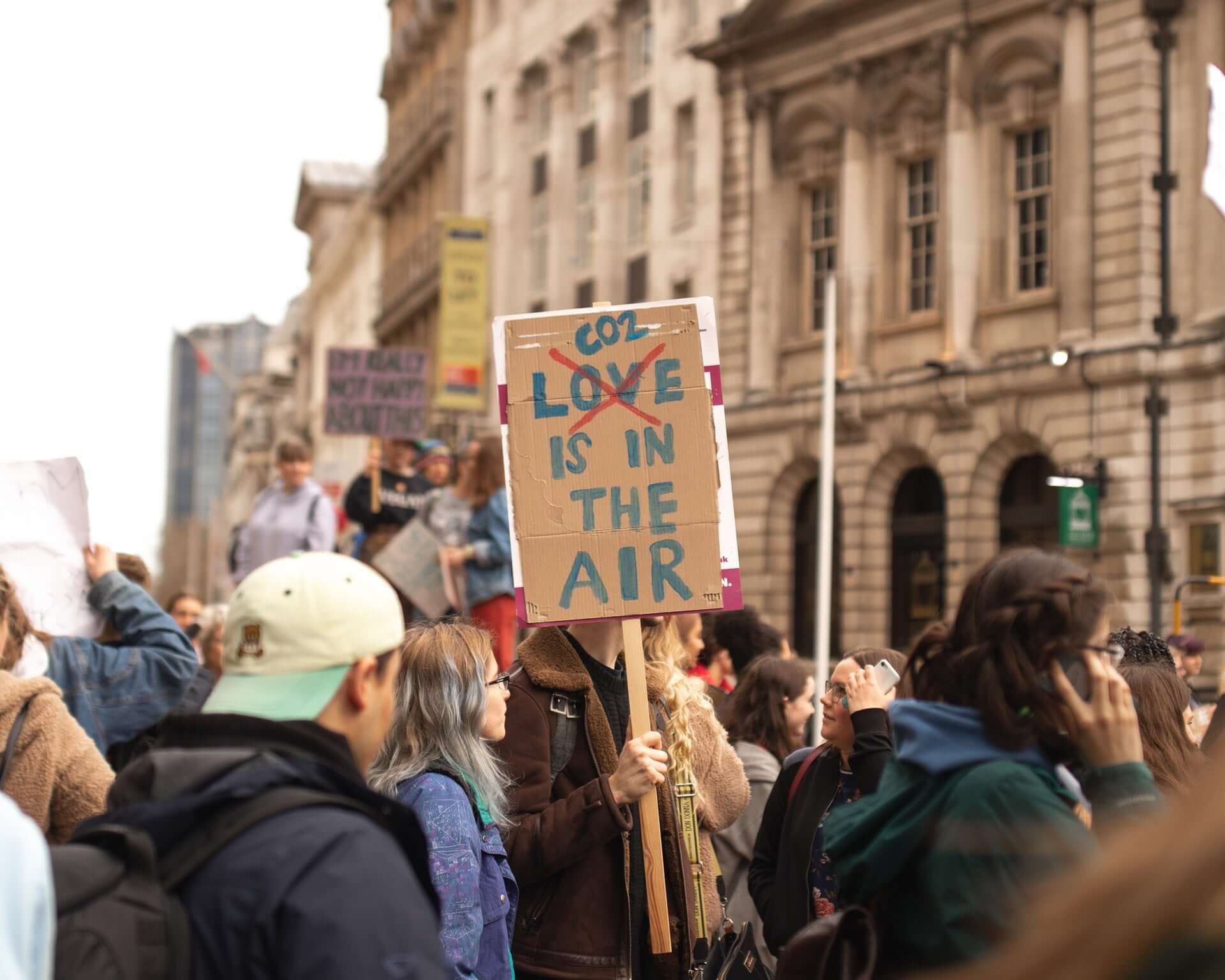
Inhaltsverzeichnis
Wieso verspüren wir Einsamkeit?
Nicht wissen, zu wem man sich in der Mittagspause setzen soll, eine Whatsapp-Nachricht, die unbeantwortet bleibt, eine Absage für eine Verabredung mit Freunden – wir wissen alle, wie sich Einsamkeit anfühlt. Wieso aber fühlen wir uns einsam? Ist Einsamkeit eine Emotion, ein Bedürfnis oder eine körperliche Funktion? Und was hat das mit der Menschheitsgeschichte zu tun? Diese Fragen möchte ich heute in diesem Post beantworten.
Einsamkeit – ungewollt, aber vertraut
Wir leben in einer Zeit mit schier endlosen Möglichkeiten, mit anderen Leuten in Kontakt zu treten. Online, offline, über das Telefon, ein Gespräch oder einen FaceTime-Anruf. Dass Einsamkeit in den letzten Jahrzehnten häufiger als jemals zuvor auftritt und in vielen Fällen chronisch ist, erscheint da erst einmal kontraintuitiv. Vielleicht ist aber auch genau das, also unsere heutige Lebensweisen und das Zeitalter des digitalen Wandels, der Grund: Freundschaften und Bekanntschaften werden oberflächlicher, Kontakte werden selbstverständlicher und sind quasi zu jeder Minute des Tages innerhalb weniger Sekunden möglich. Was macht erfüllende Kontakte aus? Eine schwierige Frage.
Einsamkeit kann jeden betreffen. Wir alle wissen, dass Einsamkeit letztendlich nicht direkt damit zusammenhängt, ob wir von anderen Menschen umgeben sind oder nicht. Schließlich kann ich mich auch in Anwesenheit anderer allein fühlen, beispielsweise bei einer Party oder in einer fremden Stadt, in der ich niemanden kenne. Einsam und allein zu sein ist also nicht dasselbe.
Um Einsamkeit ein bisschen besser verstehen zu können ist es hilfreich, einen Blick auf die Geschichte des Menschen zu werfen – wie so oft, wenn es darum geht, die menschliche Psyche und das menschliche Verhalten einzuordnen.
Was genau ist Einsamkeit?
Aus Sicht der Sozialpsychologie
Eines der bekanntesten psychologischen Modelle zur Erklärung der Bedürfnisse und Motivationen des Menschen ist die Bedürfnispyramide von Abraham Maslow.
Der amerikanische Psychologe ordnet die Bedürfnisse des Menschen, wie der Name des Modells vermuten lässt, in einer Pyramide an. Auf der untersten Stufe liegen physiologische Bedürfnisse; diese bilden also die Grundlage. Dazu zählen alle Bedürfnisse, die zum Erhalt des menschlichen Lebens erforderlich sind, wie Atmung, Schlaf, Nahrung, Wasser und Fortpflanzung. Erst wenn diese grundlegenden Bedürfnisse erfüllt sind, kann sich der Mensch der zweiten Stufe, den Sicherheitsbedürfnissen widmen. Hierunter werden jegliche Aspekte des Lebens, die zur körperlichen und seelischen Sicherheit beitragen, gefasst. Beispiele für Sicherheitsbedürfnisse sind Familie, Gesundheit, eine Unterkunft oder eine materielle Grundsicherung.
Sobald auch diese Ebene weitgehend befriedigt ist, verspürt der Mensch einen Drang nach sozialen Kontakten und Beziehungen – wo wir beim Thema Einsamkeit wären. Auch wenn soziale Kontakte (erst) die dritte Stufe der Bedürfnispyramide einnehmen, sind sie dennoch für den Menschen sehr wichtig und für ein erfülltes Leben unverzichtbar. Denn erst, wenn unsere sozialen Bedürfnisse gestillt sind, kann der Mensch sich Individualbedürfnissen wie Erfolg, Unabhängigkeit und Freiheit widmen und schließlich die Selbstverwirklichung anstreben.

Photo by Arthur Poulin on Unsplash
Aus Sicht der Evolutionspsychologie
Aus evolutionspsychologischer Sicht kann Einsamkeit als eine körperliche Funktion angesehen werden. Ähnlich wie Hunger und Schlaf uns auf unsere physiologischen Bedürfnisse aufmerksam machen will, macht Einsamkeit uns auf unsere sozialen Bedürfnisse aufmerksam.
Schon vor hunderttausenden Jahren hatten Menschen, die sich in Gruppen aufhielten, deutlich bessere Überlebenschancen als jene, die alleine durch die Gegend streunerten. Ausreichend Nahrung zu sich zu nehmen, warm zu bleiben und für Nachkommen zu sorgen: Das alles wäre allein praktisch unmöglich gewesen. Der Mensch war also auf seine soziale Gruppe angewiesen, und so wurden soziale Bedürfnisse Teil unserer Biologie. Wurde eine Person aus der Gruppe ausgeschlossen, so bedeutete dies oft den Tod. Um dieser Verstoßung aus der Gruppe vorzubeugen, entwickelte sich ein sozialer Schmerz. Der diente als eine Art Warnsystem, um den Menschen dazu zu bekommen, isolierendes Verhalten einzustellen. Die Menschen, die den Schmerz als störender empfanden und daraufhin ihr Verhalten veränderten, wurden seltener aus der Gruppe verstoßen. Diejenigen, die den Schmerz “ignorierten”, wurden ausgeschlossen und starben wohl in den meisten Fällen.
Einsamkeit als körperliche Funktion half unseren Vorfahren also, zu überleben und schuf einen Vorteil in der natürlichen Selektion. Aus diesem Grund tun uns Ablehnung und Einsamkeit auch heute noch so weh.
Die Welt ist jedoch nicht die gleiche geblieben, und auch der Mensch hat sich weiterentwickelt. In der westlichen Kultur wird sich zunehmend auf das Individuum konzentriert, der Kollektivismus verliert an Bedeutung. Der Mensch hält sich, im Vergleich zu früher, in deutlich kleineren Gruppen auf. Und obwohl immer mehr Menschen auf engem Raum in den Städten nebeneinander wohnen, leben sie zunehmend isolierter. Die moderne Technik, mit der wir heutzutage aufwachsen, trägt unter anderem dazu bei, dass Menschen sich seltener (persönlich) treffen.
Wenn Einsamkeit chronisch wird
Chronische Einsamkeit entsteht schleichend und meist nicht mit Absicht. Es gibt so viel zu tun: Arbeit, Weiterbildung, Haushalt, Kinder, und auch die Zeit vor dem Bildschirm als Entspannung darf nicht fehlen. Das erste, was da auf der Strecke bleibt, sind Beziehungen. “Ach, das lässt sich verschieben.” “Wir können uns auch nächste Woche noch sehen, andere Dinge sind gerade wichtiger”. Die Zeit mit Freunden ist das, was sich am bequemsten “opfern” lässt. Und ehe man sich versieht, fühlt man sich isoliert und sehnt sich nach engen Beziehungen. Aber Erwachsene Menschen tun sich oftmals schwer, enge Beziehungen mit anderen Menschen zu finden, aufzubauen und schließlich zu pflegen.
So kann es passieren, dass Menschen chronisch einsam werden. Denn auch wenn sich unsere Umwelt in rasendem Tempo weiterentwickelt, es eine neue Technologie nach der anderen gibt und sich unser Alltag zunehmend digitalisiert, sind unsere Körper und Gehirne praktisch dieselben wie vor tausenden von Jahren: Wir brauchen andere Menschen und soziale Beziehungen, um schmerzfrei und glücklich zu sein.
Chronische Einsamkeit wäre nicht so schlimm, wenn sie nicht so wehtun würde. Unsere Psyche ist durchgehend belastet und der Stress wirkt sich auf unseren Körper aus.
Welche Gefahren Einsamkeit birgt und wieso der “Teufelskreis der Einsamkeit” so belastend für unsere Gesundheit ist, erfährst du hier.
In diesem letzten Teil der “Einsamkeits-Serie” auf unserem Blog gebe ich dir schließlich konkrete Tipps und Übungen mit, die Einsamkeit vorbeugen oder dir zeigen, wie du mit Einsamkeit umgehen kannst.
+++ Falls du dich akut einsam fühlst, über Suizid nachdenkst oder mit jemandem sprechen möchtest, kannst du das Angebot der Telefonseelsorge nutzen. Die ist rund um die Uhr kostenlos erreichbar unter 0800 111 0 111 und 0800 111 0 222. Du kannst dabei selbstverständlich anonym bleiben. Über diesen Link findest du weitere Hilfsangebote. +++
Wenn du noch mehr über die Themen Achtsamkeit, gesunde Ernährung oder Nachhaltigkeit erfahren möchtest, schaue doch mal hier vorbei.

Photo by freddie marriage on Unsplash



























Leave a comment
This site is protected by hCaptcha and the hCaptcha Privacy Policy and Terms of Service apply.